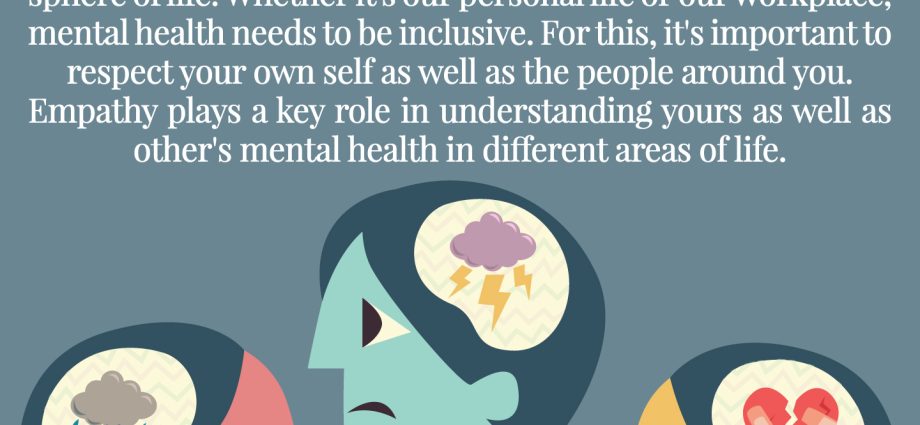Are you angry, frustrated or outraged? Or maybe more dejected, disappointed? If you find it difficult to sort out your feelings, and it is completely impossible to get rid of gloomy thoughts, look at the list of emotions and select those that suit your condition. Psychotherapist Guy Winch explains how a large vocabulary can help overcome negative thinking tendencies.
Imagine that I caught you thinking about something that upset or bothered you a lot and asked how you feel right now. How would you answer this question? How many emotions can you name — one, two, or maybe several? Everyone thinks and articulates their emotional experience differently.
Some will simply say that they are sad. Others may notice that they are sad and disappointed at the same time. And still others are able to designate their experiences in a more detailed way. They will report sadness, disappointment, anxiety, jealousy, and any other clearly recognizable feelings that they feel at that moment.
This ability to subtly discern and detail your emotions is very important. Recent studies have shown that this skill affects not only how we think about our emotions, but also how we manage them. For those who like to think endlessly about painful experiences and scroll through unpleasant situations in their heads, the ability to distinguish between emotions can be essential.
In principle, we all do this from time to time — we hang for a long time over the problems that oppress us and upset us, and we cannot stop, restoring and reliving a re-inflicted insult or professional failure. But some tend to do it more often than others.
So, the constant mental «chewing gum» (rumination) has many negative health consequences (among them — an eating disorder, the risk of alcohol abuse, a physiological reaction to stress that provokes cardiovascular diseases, etc.), including mental . Rumination is the biggest risk factor for depression.
Rumination activates the prefrontal cortex, which is responsible for regulating negative emotions. And if a person remains in the grip of bad thoughts for too long, he is one step away from depression.
We seem to be caught in a vicious circle: focusing on events that disturb us increases negative thinking and reduces the ability to solve problems. And this, in turn, leads to an increase in depressive thoughts and provides more «food» for «chewing».
People who are good at recognizing their emotions are more likely to notice the differences and all the subtle changes that take place in their feelings. For example, a melancholic who simply communicates his sadness will remain deep in gloomy contemplation until he completes a full cycle of rumination.
But a person who is able to distinguish between sadness, frustration, and intolerance in himself may also notice that the new information may not have eased his sadness, but helped him feel less intolerant and disappointed. In general, his mood improved a little.
Most of us are not good at recognizing and grading our feelings.
Research confirms that people who recognize their emotions are better able to regulate them in the moment, and in general, manage their feelings more effectively and reduce the intensity of negativity.
Recently, psychologists have advanced even further in their study of this issue. They observed the subjects for six months and found that people who were prone to spinning bad thoughts, but who were unable to differentiate their emotions, remained significantly more sad and depressed after six months than those who detailed their experiences.
The scientists’ conclusion echoes what was said above: Distinguishing emotions helps regulate and overcome them, which over time can significantly affect overall emotional and mental health. The reality is that most of us are not good at recognizing and grading our feelings. To put it bluntly, our emotional vocabulary tends to be pretty poor.
We often think of our emotions in basic terms—anger, joy, surprise—if we think of them at all. Working with clients as a psychotherapist, I often ask them how they feel at the moment in the session. And I catch a blank or worried look in response, similar to the one you can see in a student who is not prepared for a test.
The next time you find yourself replaying depressing thoughts, take a look at the list and write down the emotions you think you are experiencing at the moment. It is advisable to break them into two columns: on the left, write down those that you experience intensely, and on the right, those that are less pronounced.
Do not hurry. Linger on each emotion separately, listen to yourself and answer whether you really feel it now. And don’t be intimidated by the difficulties — choosing from a ready-made list of terms that matches your feeling at the moment is much easier than trying to determine your emotion when the therapist looks at you during the session.
Already the first performance of this exercise will show that your sensory experience is much richer than you could imagine. By doing this work several times, you will be able to enrich your emotional vocabulary and develop greater emotional differentiation.
About the Expert: Guy Winch is a clinical psychologist, family therapist, member of the American Psychological Association, and author of many books, including Psychological First Aid (Medley, 2014).










